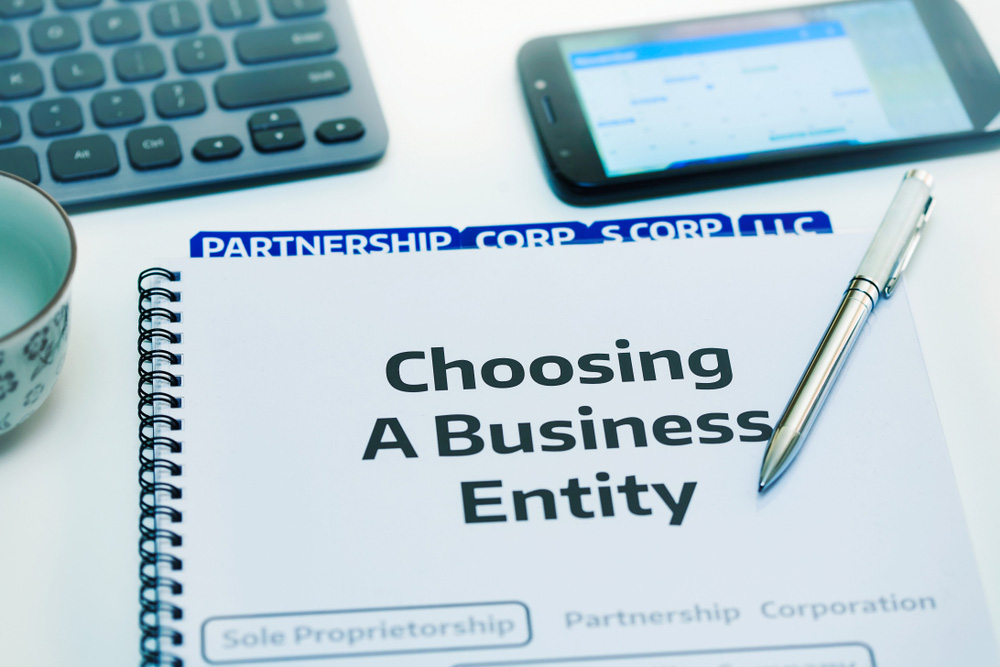Choosing Your Business Entity: 6 Mistakes to Avoid

Starting a business is complicated and fraught with opportunities to make mistakes.
Some areas are more critical than others, and one place that needs special attention is when you are choosing your business’s structure.
Avoid these pitfalls when you’re choosing an entity for your business:
- Neglecting to fill the gaps to maximize protections for your business,
- Failing to select a business structure for your company,
- Ignoring the significance of taxes,
- Ineffectively preparing for your business’s future growth,
- Disregarding the importance of keeping business and personal finances separate, and
- Not forming a business structure when you’re going into business with friends.
Your Business Needs Maximum Protection
No matter what business entity you choose to structure your company, you still need to provide maximum protection to avoid the risk of operating a business.
While some business structures, like limited liability corporations (LLC), offer you personal protection, they don’t protect your business from claims against it.
An LLC completely separates your business and personal finances and forms a wall between you and your company regarding liability issues.
That’s great for you on a personal level, but what about your business?
Business insurance for LLC-structured businesses provides for the gap in that protection.
Choose a Business Structure for Your Company
Failing to choose a business structure for your company is a choice.
There are consequences to that choice, and it’s one of the biggest mistakes people make when choosing a business entity.
The default structure sets your company up as a sole proprietorship. As a result, your business assets are not separate from your personal assets, and you can be personally liable for your business’s damages, debts, and other obligations.
Some low-risk businesses choose this type of business structure because it is easy to set up. They effectively mitigate their risk when purchasing general and professional liability insurance policies.
Consider Your Business Taxes
There are good reasons for choosing a C-Corporation, but there are also some negative consequences. When you select your business structure, consider the tax implications.
A C-Corporation provides limited liability to officers and shareholders and can enhance your company’s credibility and make it more favorable for investors.
However, your business will be subject to double taxation. In double taxation, both the company’s revenue and the shareholder’s dividends that shareholders are taxed.
Having a C-Corporation means that there isn’t a deduction allowed for corporate losses on your individual return. Still, you do have some tax advantages, such as being able to write off business expenses.
Prepare For Your Company’s Growth
C-Corporations can cost a lot to start, and there are many regulations, but there are advantages, and one of them is that this structure sets your company up for unlimited growth potential.
The C-Corporation structure allows your company to sell its stock, and there is no limit to how high the stock price can go, which inspires shareholders to invest in your company.
This type of business entity is in perpetual existence. It is entirely separate from the owner or founder of the company and will carry on after that person leaves.
Keep Your Finances Separate From Your Business
The protections provided by certain business entities, like LLCs and some corporations, are negated when you combine your personal and business finances.
When you disregard the importance of keeping business and personal finances separate, you expose your personal assets to the company’s liability.
There are other reasons to keep your personal and business finances separate. For example, building business credit may be easier and qualify your company for financing it needs.
Keeping your accounts separate also simplifies your accounting procedures, and you will have better results from your recordkeeping.
Structure Your Business When You Partner With Friends
Not forming a business structure when you’re going into business with friends is a mistake seen too often.
It’s nearsighted to think that your business partnership, or even your friendship, will last indefinitely. Not planning for the future is a huge mistake.
Going into business with a friend can be a great idea, but you must create a business structure and define other important ways of doing business together.
Be sure to communicate often and establish clear roles. Get your business plan in writing, and don’t neglect to choose a business entity together.
Avoid Mistakes By Planning For Success
When you avoid these six common mistakes, you increase the chances that your business will succeed.
Unless you pay attention to the implications of liability, taxation, and personal finances, you’ll run into problems down the road that will destroy your business.

